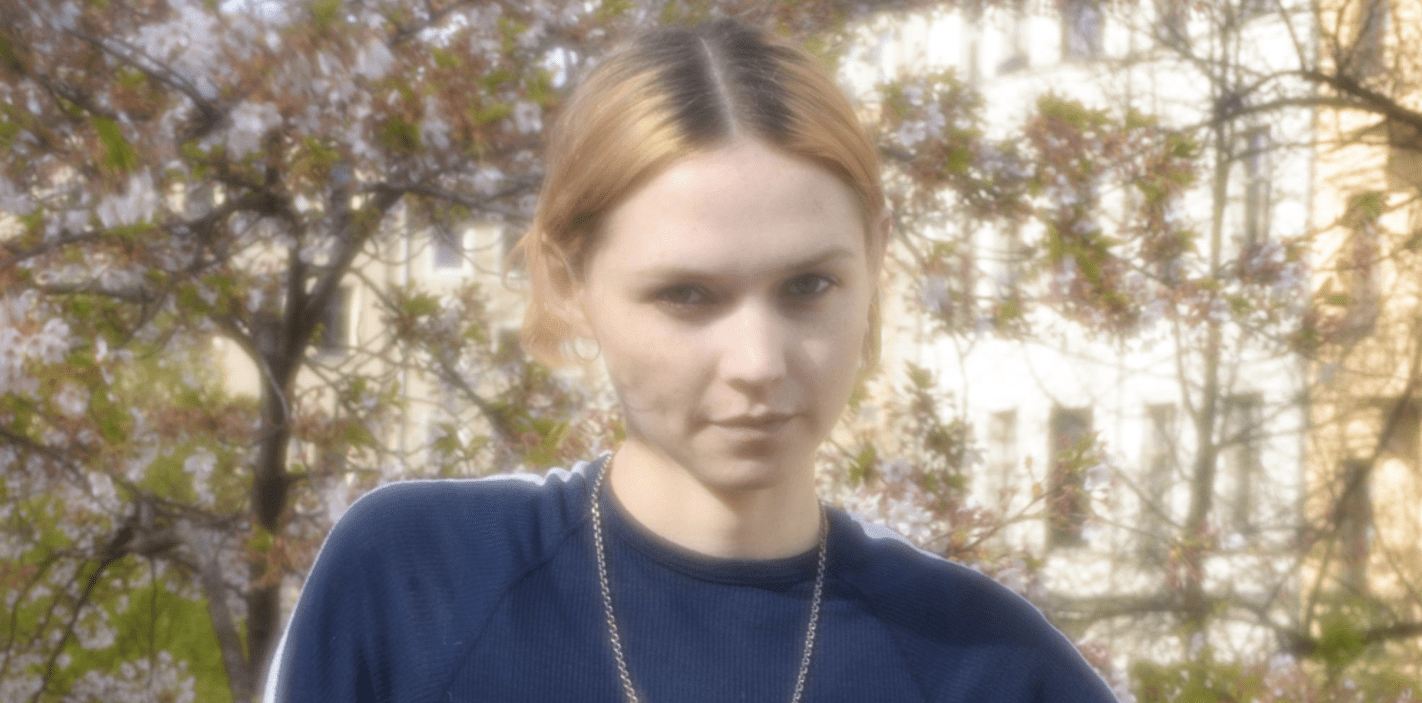Emma Burgess-Olson is Umfang, a DJ and producer from NYC pushing to change the way we look at techno. You’ve probably already heard of Emma’s collective and booking agency, Discwoman, which she founded in 2014 with Frankie Decaiza Hutchinson and Christine McCharen-Tran. Together, the trio are pushing for women, trans and genderqueer people to get booked, and get paid. As Discwoman’s empire grows Umfang continues to mix gritty experimental tracks, her approach to music as political as her impassioned social pursuits. Here, we talk the artist about democratising techno and today’s political climate.
You’ve spoken a lot about democratising of your music, and how you don’t want it to be seen as high art. Tell me more.
It feels like the current industry setup keeps people from thinking that they can make music — the language around it and the idea that you have to have some sort of technical education to be a musician. It’s like “you need to know how to use drum machines, you need to know how synthesizers work,” as if that’s the only way you can become a good producer. That’s a really limiting way to thinking about music. It’s just not true.
Absolutely.
It someone had told me that when I was a kid, I would have thought a lot differently about making music. Honestly, if you want to bang a spoon on a table and just record that, that’s actually really cool — music isn’t really this specific, guarded science. Not all music producers need to know what every single button on the mixing board does, you know?
Completely. How did you come to DJing?
A friend of mine taught me how to DJ on virtual DJ because he was booking parties and he knew that I liked techno and going to parties. He was like, okay, I want to book you for my parties, so we don’t have to book all these straight white men anymore. We were in the midwest, so the scene wasn’t as diverse is it might be in somewhere like New York City. I found it really interesting, and I got really into it. Then my computer got stolen, which led me into buying cheap records.
You obviously ended up in New York, and created Discwoman with Christine and Frankie. Can you tell me what sort of shifts you’ve noticed since the collective’s inception?
Discwoman really started as a celebration of how many female DJs we knew that we liked around that time. But, after founding Discwoman, we got a lot of feedback from people around the world who felt like their scenes were male dominated, and they didn’t have a voice. We came to realise that New York was a bit of a bubble. In New York City we can have this false idea that the world has progressed more than it has. Basically, since Discwoman started, we’ve become a little more jaded. Still, people are becoming more accountable now — sometime people will even reach out and say hey I’ve never booked a woman before and I’ve been doing a party for ten years, like, can you help me.
Since the US election, there’s been a lot unease, globally. I noticed this tone in your latest record Symbolic Use of Light. Has the political climate influenced your creative output?
Absolutely. Not only the election but the months before too. It was an incredibly tense time, with police brutality and such overt racism. There was so much shock and fear around what was happening, and what was going to happen. And I think we’re still kind of all feeling that, and that’s definitely reflected in my music. Taking the time for yourself is so important now, because the government certainly isn’t trying to let you have that time.
Now that you’ve got an audience as a solo performer are you trying to be mindful of what you’re communication to fans, listeners and so on?
Yeah. I mean we talk a lot about roots, and remembering the roots of electronic music. This music comes from is black culture, and other minority groups and queer people. We can’t want to hide that history. So it’s about always bringing it back to that, and remembering that capitalism ruins everything. We need to encourage young people that are not white and are not sitting in money to produce music and to express themselve. I want to really encourage a younger generation to change the way that things like electronic music look.
Credits
Text Meg Duncan
Photography Elizabeth Herring
